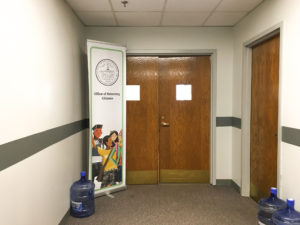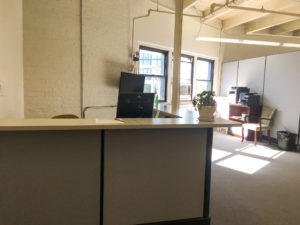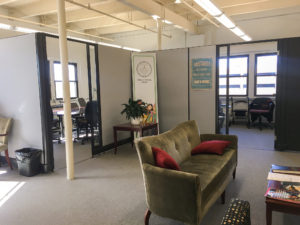December 2018 saw the passing of the First Step Act, a bipartisan-supported criminal justice reform bill. Some of its provisions included: easing up mandatory minimum sentences, relaxing the “three strikes” rule to 25 years instead of life imprisonment, enabling inmates to earn “good time credits” and “earned time credits” that can be counted towards early release or transition to halfway houses/home confinement.[1] Though it represents a hopeful shift in criminal justice reform in the US, its impacts on the machinery of mass incarceration are limited in scope, or in the words of journalist German Lopez, it is “one first step for Congress, one tiny step for criminal justice reform”.
The U.S. criminal justice system controls 7 million people; 2.1 million behind bars at any given time, 3.7 million on probation, with another 840,000 on parole. The passing of the bill is projected to lead to the early release of thousands of federal inmates. While not insignificant, the bill only pertains to those on the federal system, which accounts for a fraction of the total number of people held behind bars – the federal system holds 181,000 of the 2.1 million people locked up in federal and state prisons and local jails. Despite the limitations of the bill, it has nonetheless reopened the conversation on criminal justice reform at the federal level; though much more work still needs to be done at the state and local levels.
In this post, I detail the work that we are doing at the MIT Media Lab, Center for Civic Media in addressing prison reform at the state and local levels in Massachusetts. We are particularly concerned with the reentry experience of returning citizens. Our work, thus, aims to design and build the support structure required for successful societal and communal reentry.
The Future is Human
Each year, approximately 650,000 formerly incarcerated individuals are released from prisons and jails, with 95% returning to their communities at some point. Further, the December 2018 passing of the First Step Act and the April 2018 passing of the New Crime Bill in Massachusetts are bound to increase the number of releases. Despite the sheer numbers, reentry programs are still under-resourced and under-evaluated. Criminal records discriminate against returning citizens’ access to housing, employment, education, and healthcare, plunging many back into the vicious cycle of poverty and crime. Further still, is the invisible yet highly pervasive and toxic societal stigma towards returning citizens – leaving many feeling “sub-human” and “sub-citizen.”
For the past four months, the Center for Civic Media has been collaborating with the Office of Returning Citizens (ORC), an office under the City of Boston that facilitates the societal reentry process for formerly incarcerated individuals. As a design ethnographer, I spent a day per week at the Office, mostly run by returning citizens, to understand and observe their work processes. I sit in on client interviews where case managers (who are returning citizens themselves) conduct a needs-based assessment questionnaire with incoming returning citizens. They then refer these returning citizens to the appropriate agencies and resources.
Together with the Office, we are in the midst of building the tools and technologies required for successful reentry. We are building a CRM platform to streamline the Office’s work processes, designing a service framework for reentry, defining new metrics for measuring resilience instead of recidivism, and building self-empowerment technologies that would enable returning citizens to track and take control of their returning journey. Our aim is to dismantle and make obsolete the current structural and societal barriers to successful reentry.
Our work fundamentally grapples with humanity’s morality – to what extent can we, as a society, open our arms to returning citizens and see their valued roles in our communities? We hope to re-center the human experience of reentry in two-folds: humanizing returning citizens – their reentry process and how they are socially perceived and valued; and humanizing technologies – the importance of baking the human touch into technologies and importantly, to question the extent to which technology is the solution to begin with. Rather than undermining the value of technology, we hope to push the boundaries that the word encapsulates.



Slow Hacking for Social Change
Situated in MIT Media Lab, we find ourselves in one of the best tech meccas in the world. As such, it is easy to get swept up in the aura of technocracy. More dangerous is the “move fast break things” culture that permeates many tech-centric spaces. Such an ideology feeds the false assumption that some of the world’s most complex problems can be solved with fast and quickly deployable solutions. But what if change, meaningful change, is slow, often messy and requires great patience beyond a weekend spent at a hackathon? Rather than worshipping quick hacks, I propose we learn a new way of doing social impact work: slow hacking; a process that requires deep listening, patience, and co-creation.
In Lawrence Lessig’s Code 2.0, he details the four levers to any kind of change: code, market, law, and norms. He explains that these levers are in fact “regulators” of liberty, factors that work to either hinder or promote individual and social liberty. In the context of LinkedOut, these levers need to work collectively to facilitate societal reentry for returning citizens. In terms of code, we aim to hardcode liberation into our work by building a CRM that tracks the resilience of returning citizens instead of recidivism. In terms of market, we aim to work with employers to open up hiring opportunities for returning citizens. In terms of law, we aim to develop a new set of metrics to reassess reentry in order to make a case for more robust policies and programs to facilitate reentry. And finally, in terms of norms, we aim to humanize and destigmatize returning citizens; place in society through art and story-telling. However, not all levers are equal; they move at different time-speeds i.e. building a CRM requires less time than breaking down the social stigma towards returning citizens. Thus, our work begins to lay the foundations for these four levers of change required for successful reentry.
Humanist amongst Technologists
I am a strong believer of the critical role that design and humanities play at a place like the MIT Media Lab. I would go further to say that they have a critical role to play in life. More than introspection, it teaches us the power of outrospection; the ability to step out of oneself and see the world through a different lens, the ability to empathize. More importantly, design and humanities give us the space to build collective empathy; the radical idea of empathy as a force for social change as we begin to reimagine new ways of being in the world.
As a humanist amongst technologists at the Lab, my design and humanities training have provided me with the skillsets to navigate the multi-complex nuances of societal reentry for returning citizens. It has given me the sensitivity to pay a little more attention, the lens for humanity-centered co-design, and the tools for slow hacking. As we move forward with the project, my hope is that these ways of being and seeing the world will continue to guide our moral compasses.
[1] https://www.vox.com/future-perfect/2018/12/3/18122392/first-step-act-criminal-justice-reform-bill-congress

